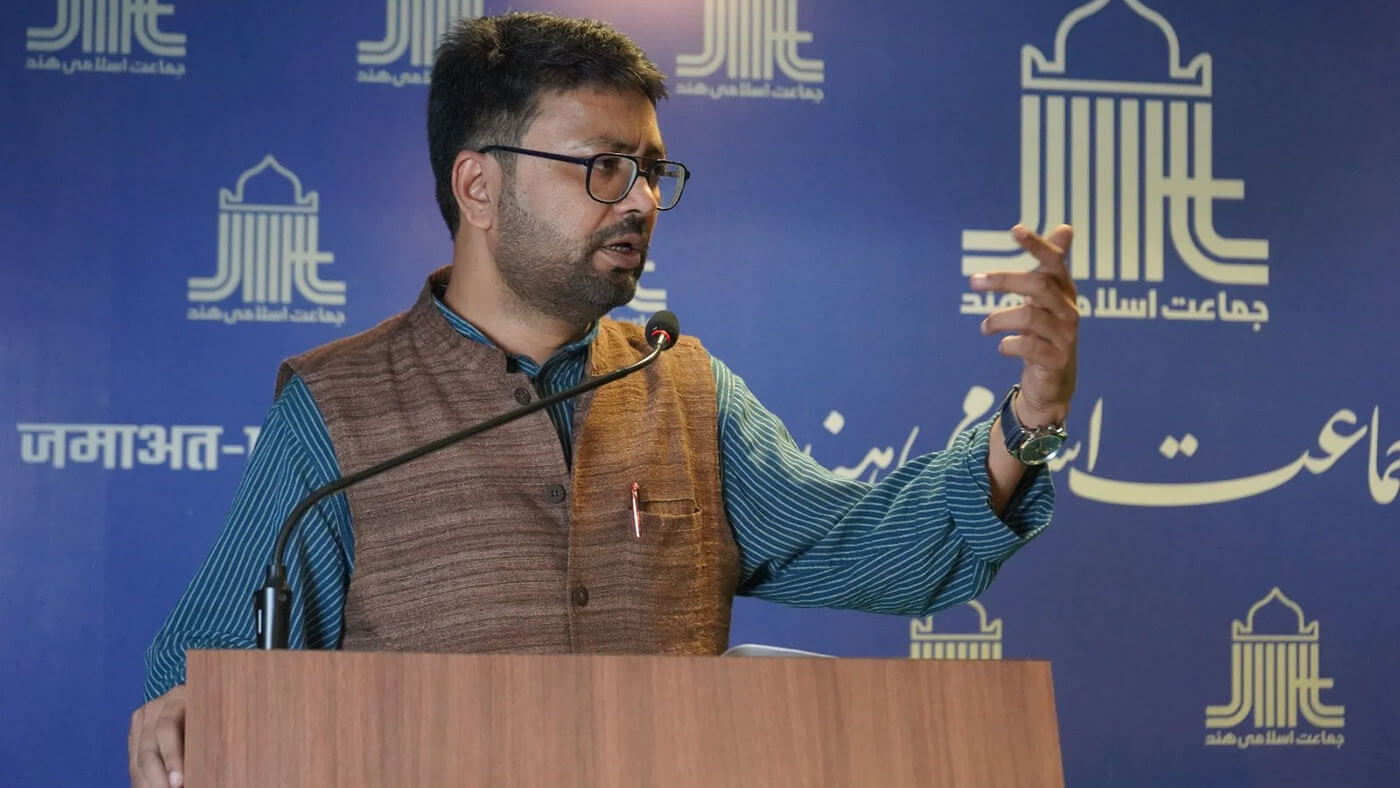New Delhi: Human rights activist and General Secretary of the Association for Protection of Civil Rights (APCR), Nadeem Khan, has described use of bulldozer to give instant justice in certain crime accused, in some part of the country are one of the punitive actions targeting the Muslims and other marginalized sections of people.
Mr Khan told a weekly address program at the Jamaat-e-Islami Hind (JIH) Headquarters in New Delhi on bulldozer injustice and legal implications, which has become the new normal for the demolition of property of accused in any matter for some section of people.
The Concept of Bulldozer (In)justice
Khan explained the term bulldozer justice as the state’s attempt to punish the alleged offenders through demolition without following due legal process. Bulldozer Injustice has become a tool for the government to instill fear within marginalised communities, particularly Muslims, in the wake of communal violence and political upheaval.
Context
Khan traced Bulldozer injustice to Israeli policies in Palestine, which he argued only provided a blueprint for punitive demolitions in India. He said that the practice in question picked up after the emergence of the Bharatiya Janata Party (BJP) in 2017 and has marked a considerable rise since then. “We hardly saw demolitions being used in this manner before this,” Khan said, marking the shift in governmental policy.

Disproportionate Impact on Muslim Communities
Patterns of Targeting
Khan provided evidence showing that demolitions mainly targeted the Muslim community. He pointed out incidents in which they destroyed the properties of the accused without any legal proceedings against their owners. “This has nothing to do with law and order; it is a selective punishment targeting Muslims,” he asserted.
Examples of Demolitions
Gujarat, Madhya Pradesh, and Rajasthan: Khan explained how the states of Gujarat and Madhya Pradesh have experienced repeated razing after cases of communal violence. He highlighted how politicians’ inflammatory speeches caused riots and the subsequent razing of properties, such as in Saharanpur and Kanpur.
Government Housing Schemes: Khan noted that even demolitions that have taken place in the last few years targeted houses constructed under the government’s housing schemes. He noted that even the demolitions that took place did not ensure sufficient notice and fair hearing of the residents whose rights were violated.
Legal Issues: He highlighted the alarming trend in judicial response to these demolitions. “The Supreme Court frequently declines petitions challenging such actions and sends them back to hostile local high courts,” he argued. This lack of judicial oversight has contributed to the impunity culture in demolitions; for example, demolitions in people’s places go on without anyone being held accountable.
Khan has given more examples in high courts to illustrate the slow movement of cases in the judicial realms. He mentioned the case of Javed Muhammad, whose house had been demolished two years ago without a hearing. This delay in judicial rulings represents an issue within the legal framework of property rights and demolitions.
Demand for Legal Reforms
Khan emphasized the need for decisive guidelines over the demolition processes. “We need a minimum notice period and oversight by judicial officers to prevent arbitrary actions,” Khan said. A proper framework, he urged, would help curb some of the punitive nature of these demolitions and governmental overreach.
Recommendations for Reform
Minimum Notice Period: Khan demanded a minimum notice period before any demolition began, wherein the affected party was given a reasonable time to argue and litigate the matter in law courts.
Judicial Control: He recommended that a judicial officer be appointed to handle demolition proceedings with the intent of upholding all legal procedures.
Transparent Process: The demand for a transparent process is a reminder that will help people regain confidence in the system so that demolitions should be fair and unbiased.
Impacts on the socio-system
According to Khan, demolitions have broader implications for communal harmony in India. Targeting specific communities does not promote social cohesion, but creates resentment; these are haunting words from the newly appointed head of the MCD. “We should build a society where justice reigns through faith, irrespective of faith,” he urged.
Activism
Khan emphasised collective action in the defence of civil rights among all those organisations as well as others. In his closing remarks, Khan emphasized the need for the current legal system to respond with sufficient vigour to guarantee that the victims’ receive justice. “We should hold the state responsible for its actions,” he concluded.




